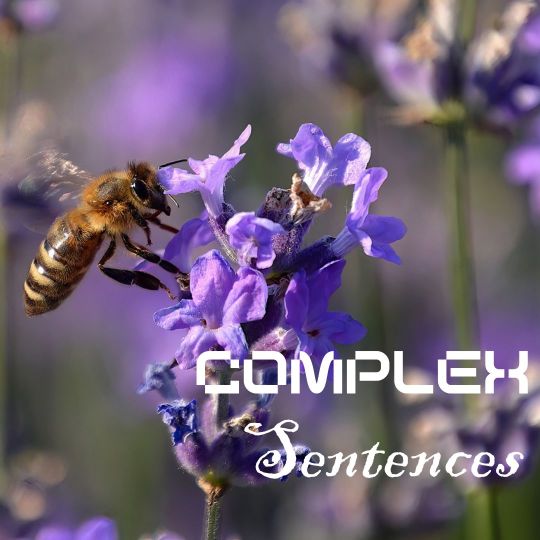#subordinate
Text

You have to accept the role that has been assigned to you (II)
16 notes
·
View notes
Text




#lay zhang#yixing#exo#zhang yixing#exo-l#VEIL#Junmyeon#Subordinate#Minseok#Xiumin#Kai#Jongin#Chanyeol#Chen#Jongdae#D.O.#Kyungsoo#SEHUN#Baekhyun#BBH
73 notes
·
View notes
Text
KIERAN WHITE GOSHHH 😭😤🤧💞✨
Why did I only see this NOWWW!?? Sophism your art is so good damn I cannot even- aaaaaaaaah 😭

like look at HIM
My heart actually skipped a beat when I saw this 😶🌫️...

Also Back to December's bridge was playing in my mind like- I miss your tan skin~ your sweet smile~ so good to me so right~~ that also kind of applies to me CAUSE AAAH I NEED MORE KIERAN CONTENT 😭 honestly JUST PURPLE HYACINTH CONTENT IN GENERAL
#kieran white#purple hyacinth#purple hyacinth webtoon#webtoon#sophism#ephemerys#i just want to hug him#he's too gorgeous#mom kieran HE'S AMAZING#subordinate
23 notes
·
View notes
Text
When my Alpha is suddenly available online, I stop what I'm doing and show him the attention and respect that he deserves.

Thank you, @maxtem19. Everything is yours.

9 notes
·
View notes
Photo

Subordinate Indignance by Jeff Klena
Contact me at [email protected] for availability
JAK 03-11-2021
18x36in Latex on Canvas
Printed items can be found here - https://fineartamerica.com/featured/subordinate-indignance-jeff-klena.html
#subordinate#indignance#ohioartist#jeff klena#figure painting#male figure#painting#fine art#expressionism#occult art#outsider artist#monochromatic#abstract figure#Black and White#trippy#dark surrealism#dark surreal art
9 notes
·
View notes
Text


#illustration#illustrator#fanart#art#hong kong#hongkongartist#drawing#watercolor#gangland#boss#big boss#tattoo#subordinate#香港插畫#插畫#插畫家#水彩#水彩画#原創#紋身
2 notes
·
View notes
Text

I should not think my input is equal to my manager or my boss’s boss’s input (or my CRO or my CEO or any other VP’s opinions)
0 notes
Text
Subordinate Clauses

Understanding Subordinate Clauses and Their Varieties
A complex sentence, by definition, consists of one independent (main) clause and at least one dependent (subordinate) clause.
A subordinate clause, also known as a dependent clause, is a group of words that has both a subject and a verb but cannot stand alone as a complete sentence.
It relies on a main clause (independent clause) to provide a complete thought.
Subordinate clauses can be categorized into three main types based on their grammatical function within a sentence: noun clauses, adverb clauses, and adjective clauses.
Each type serves a different purpose and modifies or complements the main clause in distinct ways.
Noun Clauses:
A noun clause is a group of words that functions as a noun within a sentence.
It can serve as the subject, object, or complement of the main clause.
Example:
What she said is important(subject).
I don't know what to do (object).
The fact that he succeeded is amazing (complement).
Adverb Clauses:
An adverb clause is a group of words that functions as an adverb within a sentence.
It typically provides information about the time, place, manner, reason, condition, or degree of the action in the main clause.
Example:
While I was studying, my friends were playing outside (time).
She sings as if she were an angel (manner). Because it was raining, we stayed indoors (reason).
Adjective Clauses (Relative Clauses):
An adjective clause is a group of words that functions as an adjective within a sentence.
It provides additional information about a noun or pronoun in the main clause.
Example:
The book that I borrowed from the library is fascinating (modifying the noun book).
The person who helped me is my neighbor (modifying the noun).
Finite Subordinate clauses:
A main clause, or independent clause, is finite. In grammar, a finite clause is one that has a subject and a finite verb.
A finite verb is a verb that is inflected for person and tense and typically indicates a completed action or state.
A subordinate clause can also be finite.
A finite subordinate clause is a group of words that contains a subject and a finite verb but cannot stand alone as a complete sentence.
The finite verb in a subordinate clause is inflected for person and tense, just like in a main clause.
Here are examples of finite subordinate clauses:
Adverbial Finite Subordinate Clause (Time):
After the rain stopped, we went for a walk.
Adjectival Finite Subordinate Clause (Relative Clause):
The woman who lives next door is a doctor.
Nominal Finite Subordinate Clause (Subject):
What you said surprised everyone.
Adverbial Finite Subordinate Clause (Reason):
Because she studied hard, she passed the exam.
Adjectival Finite Subordinate Clause (Conditional):
If you finish your homework, you can go out.
Nominal Finite Subordinate Clause (Direct Object):
I believe that honesty is the best policy.
Non-Finite Subordinate clauses:
Subordinate clauses, nevertheless, can be Non-finite.
Non-finite subordinate clauses are characterized by the absence of a finite verb.
A finite verb is a verb that is inflected for person and tense and is typically found in main clauses, marking agreement with the subject and providing information about when the action occurs.
Non-finite verbs, on the other hand, lack this inflection for person and tense.
Let's explore why the verb in non-finite subordinate clauses is referred to as such:
No Marking of Agreement and Tense:
In non-finite subordinate clauses, the verb remains in its base or root form (infinitive, gerund, or participle) and does not change to reflect the person or number of the subject.
It does not carry information about when the action takes place.
For example:
She wants to visit the museum. (Infinitive, non-finite)
She visits the museum. (Finite)
Cannot Be Modal Auxiliary:
Non-finite verbs cannot function as modal auxiliary verbs.
Modal auxiliary verbs (such as can, could, will, would) are used with the base form of a main verb to express modality, possibility, necessity, etc.
Non-finite verbs do not have the same modal properties.
For example:
She can visit the museum. (Finite)
She wants to visit the museum. (Non-finite)
Subject Is Not in Subject Case:
In non-finite subordinate clauses, the subject of the clause, if present, is often in the objective case or implied, and it does not affect the form of the non-finite verb.
For example:
I saw him running in the park. (Objective case)
She heard them singing in the choir. (Implied subject )
Nonfinite Subordinate clauses Types :
There are several types of nonfinite subordinate clauses, including infinitives, gerunds, participles, and verbless clauses.
Infinitives:
Infinitive clauses often function as nouns, adjectives, or adverbs within a sentence, serve as the direct object of the verb.
She brought a gift for him to open.
They worked hard for the team to succeed.
They gathered resources to build a shelter.
She bought ingredients to bake a cake.
They helped him leave. (bare Infinitive)
Participles:
Participial clauses function as adjectives, providing additional information about a noun.
The children, playing in the park, laughed joyfully.
The stormy weather, frightening the animals, forced them into hiding.
The story, written by a famous author, captivated the readers.
The exhausted hiker reached the summit, guided by an experienced mountaineer.
Gerunds:
Gerund clauses function as nouns, often serving as subjects, objects, or objects of prepositions.
Gerund clauses, being a type of non-finite subordinate clause, can sometimes have the subject omitted, especially when it is the same as the subject of the main clause.
Here are examples:
He's not very good at remembering names.
She wrote an essay about exploring ancient civilizations.
I was surprised at finding my lost keys.
I was surprised at learning about the sudden change in plans.
They asked him about joining the upcoming project team.
Verbless Clauses:
Verbless clauses, as the name suggests, lack a finite verb.
Instead, they often start with a present or past participle, an infinitive, or a prepositional phrase.
These clauses can function as adverbials, providing information about time, manner, or condition.
Examples:
Born in Paris, she developed a love for art.
Without hesitation, he jumped into the water.
His passion for painting evident, he spent hours in the studio.
With a smile on her face, she accepted the award.
Subordinate Clauses
Complex Sentences
Compound Sentences
Imperative Sentences
Subject Pronoun/ “One” and “They” as subject meaning
About Phonetics
Read the full article
#adjective#adverb#clauses#complex#dependentsentence#finitesubordinateclauses#gerunds#infinities#lackofinflectionforpersonandtense#nonfinitesubordinateclauses#noun#participles#sentence#subordinate#verblessclauses
0 notes
Text

Today is not only Malleus's Birthday, but also Lilia's 'rebirth!'
Happy Birthday Malleus!
#malleus draconia#twisted wonderland#twst#lilia vanrouge#meleanor draconia#I started this last week before the card reveal drawing it on and off while working#i wanted to focus on the history of trust and loyalty between a maleficent and their diablo counterpart#i gasped when i saw diablo on malleus's card ;v;#and then sobbed when i read his voiceline talking about how the witch of thorns is said to be loyal to her subordinates
8K notes
·
View notes
Text

You have to accept the role that has been assigned to you
2 notes
·
View notes
Text
world #USD #reserves,#assets now safe only for countries with #subordinate foreign #policies
#Fukuyama book (#naive #arrogant)& alternative #regimes
#frozen #Russian foreign exchange reserves: chain #reaction to USD #dominance end
Janet #Yellen forecast
https://salvatoremercogliano.blogspot.com/2023/06/the-end-of-history-of-us-dollar.html?spref=tw

1 note
·
View note
Text
faglife is an intrusive, consistent mindfuck. @maxtem19's rule has always been that I sit to piss like a bitch. For months I did my best, until one day I just…committed.
It's now been *5 YEARS* since I stood to piss like a man.
Thank you for intruding me, Boss. I'm yours.

10 notes
·
View notes
Quote
'There are moments . . . when even a married woman must be herself rather than her husband's wife. It is so, though you cannot understand it.'
'I certainly do not understand it.'
'You cannot make a woman subject to you as a dog is.'
Anthony Trollope, from Phineas Finn
#autonomy#marriage#feminism#personhood#the self#identity#lack of understanding#incompatible#dehumanizing#controlling#male chauvinist#dialogue#social commentary#subordinate#quotes#lit#words#excerpts#quote#literature#classics#anthony trollope#phineas finn
1 note
·
View note
Text

tired.
#cod#call of duty#simon ghost riley#john soap mactavish#sometimes you just gotta slump against your subordinate#we do not blame a man#my art
5K notes
·
View notes
Text
youtube
#youtube#spkc aio#education#sanjay sir#english#english grammar#learn english#english grammar in hindi#teacher#classes#clause#phrase#sentence#types of clause#type of sentence#conjunctions#types of Conjunctions#coordinating#subordinate#correlative
0 notes
Text
Complex Sentences

Complex Sentences
A complex sentence is a sentence that contains one independent clause (main clause) and one or more dependent clauses (subordinate clauses).
An independent clause can stand alone as a complete sentence, while dependent clauses rely on the independent clause for meaning and cannot stand alone.
Principal Clause (Independent Clause):
The principal clause is the main part of the sentence that can stand alone.
Example: She went to the market.
Subordinate Clause (Dependent Clause):
The subordinate clause depends on the principal clause for meaning and cannot stand alone.
Example: Because she needed to buy groceries.
Connection Between Clauses:
Conjunctions are often used to connect the independent and dependent clauses in a complex sentence.
Example: She went to the market because she needed to buy groceries.
She went to the market is the independent clause.
Because she needed to buy groceries is the dependent clause.
Because is the conjunction connecting the two clauses.
Examples Without Conjunctions:
Complex sentences can be formed without the use of explicit conjunctions, relying on the structure and context to convey the relationship between the clauses.
Walking along the beach, they found a message in a bottle.
They found a message in a bottle is the independent clause.
Walking along the beach is the dependent clause.
They visited the museum we recommended.
They visited the museum is the independent clause.
we recommended is the dependent clause.
She said she would return in the evening.
She said is the independent clause.
she would return in the evening is the dependent clause.
Complex Sentences
Compound Sentences
Yes/No Questions (Interrogative Sentence)
Adverbial Modifier in Declarative
Preposition – “Among (Amongst)”
Phonetics
Read the full article
0 notes